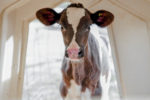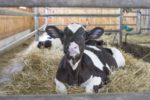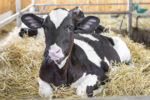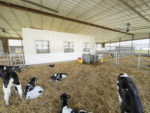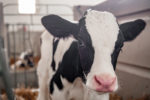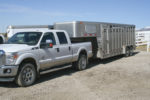Calves & Heifers
Early life management affects a calf’s health and productivity, not only short-term but throughout its entire life. To help ensure success, farms should focus on nutrition, microbiome, immunity and gut integrity.
Read More
Getting calves to drink water is a yearlong pursuit
A calf’s body is 70% water, and water intake is closely tied to rumen development and starter intake. To encourage intake, producers should provide clean water frequently. Providing warm water or water with electrolytes in a bottle may also encourage additional intake.
Read More
Colostrum for calves with diarrhea? Exploring the potential of colostrum as an additional therapy
Calves with diarrhea could benefit from colostrum supplementation. Recent research shows that eight feedings over four days could reduce the disease to 2.75 days.
Read More
Set up for success: 7 tips for getting the most out of your autofeeder
Automatic calf feeders certainly have many pros, but they are still a tool that must be managed properly to be effective. Managing calves correctly, maintaining the machines and feeding them appropriately are key to success.
Read More
Colostrum can help control BRD: Build immunity early in replacement heifers
Controlling BRD is essential for raising healthy calves, but to do so producers and employees need to do a few key things: Know the signs of BRD, provide good-quality colostrum and vaccinate against it.
Read More
Mycotoxins: Not just a dairy cow issue
While some might think mycotoxins don’t affect calves, they can be present in calf starter. Concentrations must stay below 300 parts per billion in calf feed; otherwise, it is toxic.
Read More
Preparing heifers to travel
Raising replacement heifers off-site is popular; however, it comes with various challenges. Producers should consider this and set animals up for success by providing things like electrolytes, good nutrition, supplements and taking trip length and weather into account.
Read More
